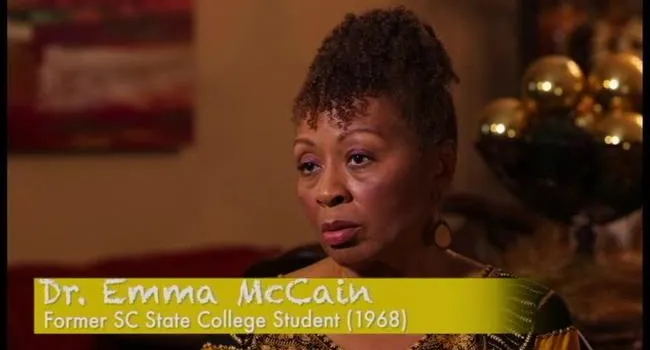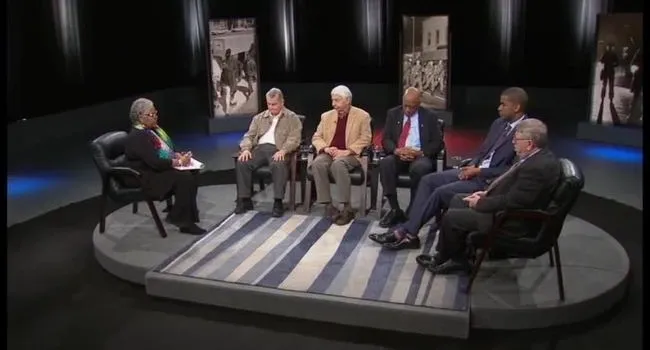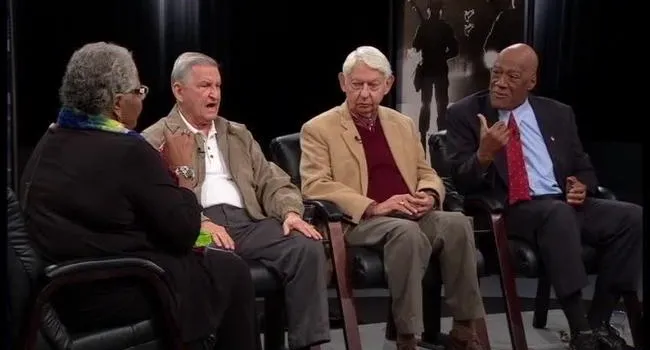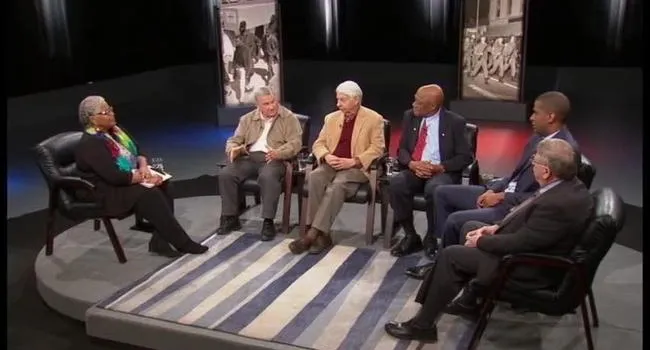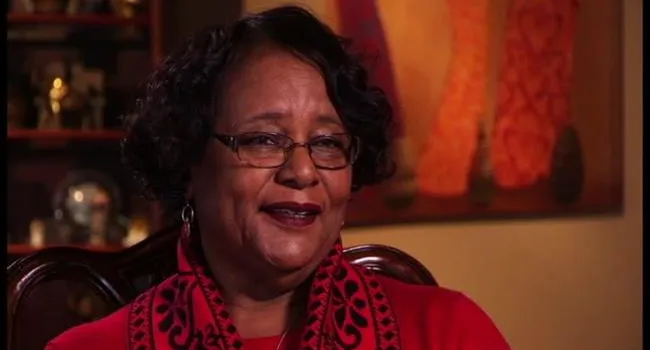Fifty years have passed since the tragic Orangeburg Massacre occurred at South Carolina State College. With the protests at the All Star Bowling Alley mere days before, no one anticipated the massacre which was about to occur. The spirit of the incident still lingers on, with conflicting accounts, and numerous questions still unanswered.
The guests for this program are SLED Lieutenant Carl Pete Stokes (Ret.), journalist Jack Bass, Lieutenant Colonel Jordan Simmons (Ret.), CNN analyst and attorney Bakari Sellers, and Bill Barley, the official photographer for the office of Governor McNair, the night of the shooting.
Other survivors from that night offer their opinions on why the story of the Orangeburg Massacre is not complete.
Standards
- This indicator was developed to promote inquiry into how the lifestyles of those living in capitalist countries differed from those living in communist countries. This indicator was also designed to promote inquiry into how the rights of citizens differed in capitalist and communist countries.
- 8-7 The student will demonstrate an understanding of the impact on South Carolina of significant events of the late twentieth and early twenty-first centuries.
- This indicator was designed to foster inquiry into the role of South Carolina in the Modern Civil Rights Movement, to include the influence of court cases such as Briggs v. Elliot and Flemming v. South Carolina Electric and Gas. This indicator was also developed to promote inquiry into the relationship between national leadership, protests, and events and South Carolina leadership, protests and events, such as the Friendship Nine and the Orangeburg Massacre.
Resources
You need to be logged in to listen to view this content. Create an account now; it's quick, easy, and free!
Log In to View


